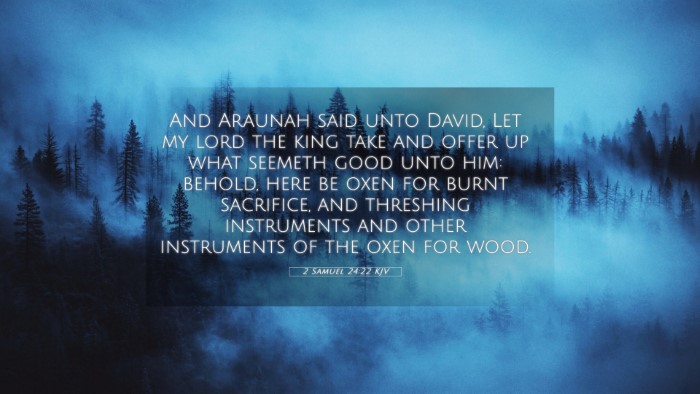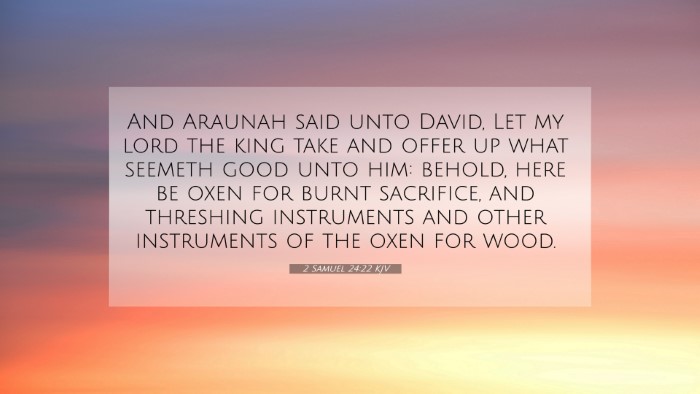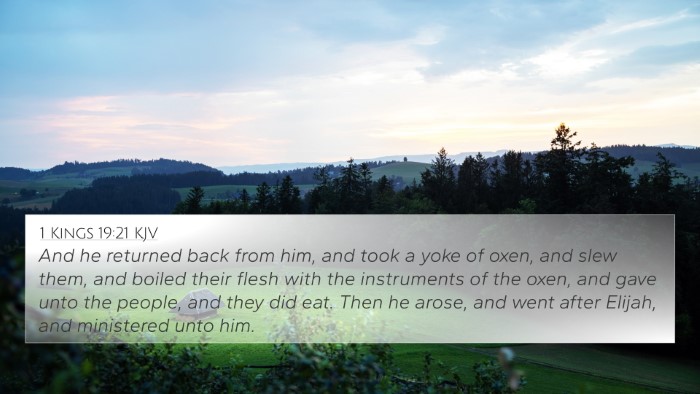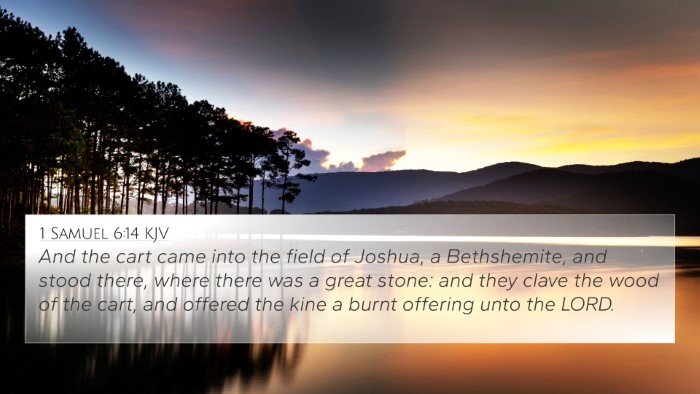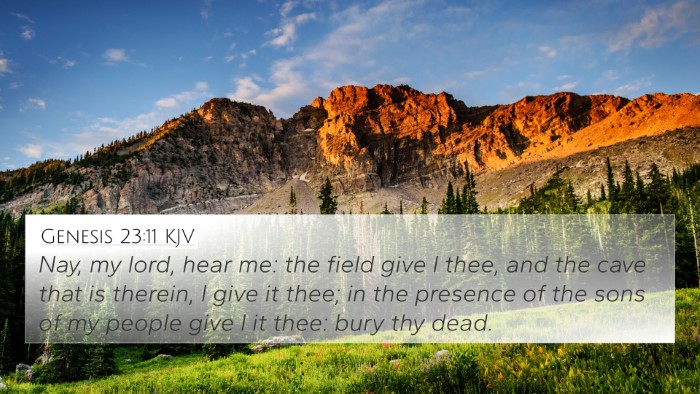Understanding 2 Samuel 24:22
Verse: 2 Samuel 24:22 states, "And Araunah said unto David, Let my lord the king take and offer up what seemeth good unto him: behold, here be oxen for burnt sacrifice, and threshing instruments and other instruments of the oxen for wood." This verse reveals key themes of sacrifice, obedience, and humility in the relationship between David and Araunah.
Commentary Insights
Combining insights from renowned public domain commentaries, we explore the multifaceted interpretations of this verse:
- Matthew Henry: Henry emphasizes the act of sacrificial giving and the humility displayed by Araunah. He points out that Araunah, recognizing David's royal status, willingly offers his possessions for a greater cause. This act demonstrates a principle of giving one's best in service to God and underscores the importance of the heart's intention in offerings.
- Albert Barnes: Barnes notes the context in which Araunah offers his oxen for sacrifice, believing it to be an act of service to the king. He highlights that David’s acceptance of this gift signifies a depth of respect for Araunah's offer, and it illustrates the collaborative nature of worship, where both parties contribute to honoring God.
- Adam Clarke: Clarke provides an analysis of the significance of the oxen and the instruments offered, considering their role in the sacrificial system. He remarks on how the act of sacrifice is paramount in worship and reflects a larger narrative concerning atonement and restitution in Israel's relationship with God.
Thematic Connections
This verse is interwoven with several themes found throughout the Scriptures, making it rich for comparative analysis:
- **Sacrifice and Obedience**: The willingness to provide for sacrifice echoes in Genesis 22:2 where Abraham is commanded to offer Isaac.
- **Recognition of Authority**: Similar to the relationship between David and Araunah, 1 Samuel 24:6 shows David respecting Saul's kingship despite the latter's intentions against him.
- **Offerings to God**: The act of offering resources to God is also seen in Leviticus 1:3, which articulates God's expectations for sacrifices.
- **God's Mercy**: This verse interconnects with Lamentations 3:22, illustrating God's mercy and how His grace permeates our acts of worship.
- **Humility**: Araunah's humility reflects that found in Philippians 2:3, where believers are called to consider others better than themselves.
- **Divine Provision**: The dependence on God for provision and sacrifice can be likened to Psalms 50:10-11, emphasizing God's ownership over all creation.
- **Worship and Community**: The communal aspect of worship is portrayed in Hebrews 10:24-25, where believers are encouraged to motivate one another in their faith.
Cross-Referencing Biblical Texts
The cross-references elucidate deeper meanings and connections between verses, enhancing understanding through thematic dialogue. Here are additional links to consider:
- Exodus 34:20 - The principle of redemption through sacrifice.
- 2 Chronicles 3:1 - The significance of the altar where sacrifices are made.
- Hebrews 9:22 - The necessity of blood for atonement, a theme resonant throughout Scripture.
Application and Reflection
In applying the lessons of 2 Samuel 24:22, we see the importance of willingly giving our resources—time, talents, and treasures—as acts of worship. This verse challenges believers to embrace a heart of humility and service, recognizing that all we have is a gift from God.
Tools for Bible Cross-Referencing
Understanding cross-references can significantly enhance one’s study of Scripture. Consider using:
- Bible concordance: An essential tool for locating verses and their contexts.
- Cross-reference Bible study guides: Helpful for navigating thematic connections.
- Bible reference resources: Various tools available to aid in understanding scriptural ties.
Conclusion
As we delve into 2 Samuel 24:22 and its connections through various scripture, we are reminded of the profound implications of sacrifice, humble service, and the intrinsic links between the biblical texts that bear witness to God’s continual call to worship Him through our circumstances. Embracing these insights leads to a richer spiritual life and a stronger community of faith.

